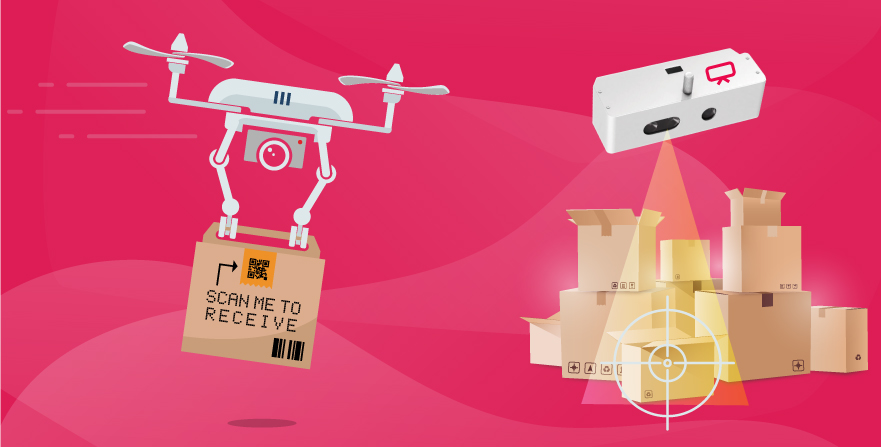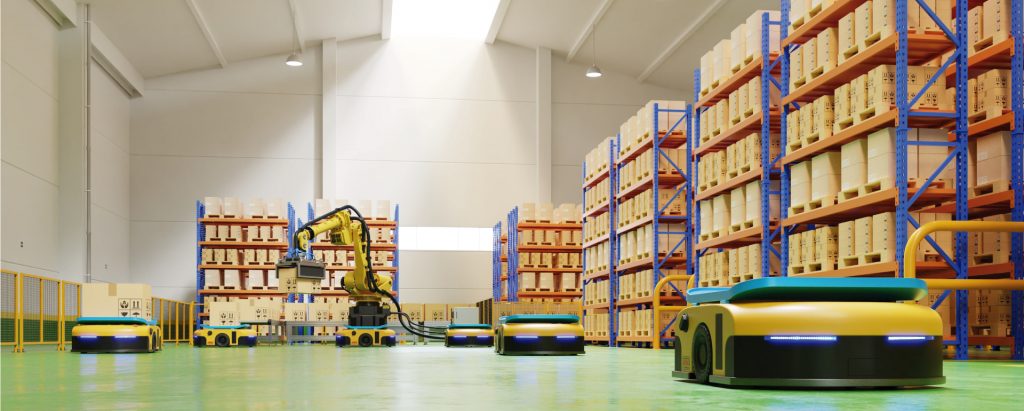Currently, we find ourselves in a sector permeated by digital transformation and renewal, since the current situation the world is going through requires a great capacity for adaptation on the part of the companies in this industry.
To be able to adapt to the new needs of their users and to be able to supply the demand for products, especially at this time, where virtual purchases have increased and logistics and transport services have become important suppliers to reach customers, so they must look for tools that allow them to increase productivity.
Thus, logistics 4.0 is becoming a more widely used term and tends to have more value in the industry, since it is related to the creation of networks and integration of logistics processes within and outside commercial enterprises and production facilities.
The aim of this trend is the automation of processes and the integration of systems, for greater productivity of supply chains.
It is focused on the use of innovative technologies, e.g. forecast based supply chain management, which contributes to the optimization of the following aspects:
– Reliability
– Quality
– Flexibility
– Ability to deliver
– Service level

Some of the solutions corresponding to logistics 4.0 consist of systems interconnected through communication networks. Other components are:
– Intelligent devices, which have the ability to make assertive decisions based on data and information.
– The cameras that take pictures of the packages to bring the traceability of the shipments, in the case of parcel and transport companies.
– Autonomous cars that can be used to make last-mile deliveries or for the interior of a storage center, this will depend on the nature of the business and the purpose of the equipment.
Among the benefits of the application of digitalization and integration of processes is that it is possible to ensure the quality of data collected, which is essential for networked systems since it is a factor that will influence the effectiveness of the mechanism.
We must take into account that, in order to benefit from the tools it proposes, the company must create and implement planning, control, and monitoring in its processes, as well as integrate information and material flows. All in order to connect the systems involved in the supply chain and identify the appropriate technologies required for proper optimization.
Additionally, digitalization and digital transformation play a fundamental role in logistics 4.0, since it is not possible to implement it if the notes are still taken in a notebook or the processes are manual. It is essential to have a fully digitized supply chain from end to end. Therefore, those companies that wish to make use of this modality should forget about manual processes.
Ultimately, this is not only about creating a digital supply chain for individual companies but also about making various value and supply chains compatible with each other and networking them.
After having mentioned the benefits and requirements that must be taken into account for the implementation of this tool, we will now mention some aspects that are currently applied and that mark the future of a more digitalized industry.
Trends in logistics 4.0
1. The delivery of orders in a timely manner, regardless of the short-term nature of demand and service times of established logistics companies, which generates more competitive models for first and last-mile deliveries.
2. Multi-channel models for shipment management. This means that the company has various means of transport to make deliveries. It is essential to take into account that all channels must comply with specific standards and requirements in order to be more efficient.
3. E-commerce has become a pillar for companies since it is a sales channel on which they focus a large part of their efforts, especially now that it is the main channel and the volumes of shipments in the logistics sector are in greater demand. So it becomes a necessity to automate their processes to increase their productivity. To conclude, aspects such as digitalization and digital transformation are fundamental for the progress of the logistic chain of the companies, taking into account the trends that mark the future of the industry.
Do you want to know more about 4.0 logistics and the startups that are revolutionizing the industry?
We invite you to sign up for our next webinar, where we will have a conversation with the startups that are revolutionizing the logistics industry with their solutions and technologies.
Here we will then tell you a little bit about the speakers so that you don’t miss it.

To talk a little about the customs issue we will have Daniel Alarcón, CEO of Logiety, a Mexican startup that developed a software for foreign trade that performs the digitalization of customs clearance and tariff classification.

Cubing systems are becoming more relevant in the optimization of the logistics chain, so we will have Camilo Garcia, CEO and Founder of CubiQ, a startup that has solutions for the optimization and automation of the cubing of goods, which brings productivity and performance benefits to the logistics chain.

Regarding the online sales and e-commerce trend, we will have Tomás Obando, CEO of Véndelo, a startup focused on giving digital entrepreneurs in Latin America and Spanish speaking countries the necessary tools to start a successful e-commerce.

Regarding last-mile deliveries, we will be joined by Camilo Arango, CEO of Vueltap, a Colombian shipping, logistics and express courier startup that offers couriers available throughout the city for fast and secure deliveries.
Do you want to know about industry 4.0 and the latest technologies in the sector?

Sources
https://blogs.imf-formacion.com/blog/logistica/logistica/internet-cosas-iot-aplicada logistica/
https://blogespanol.se.com/innovacion/2018/04/24/industria-4-0-en-hannover-2018/


